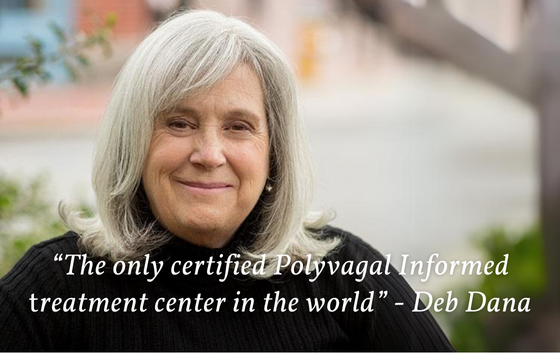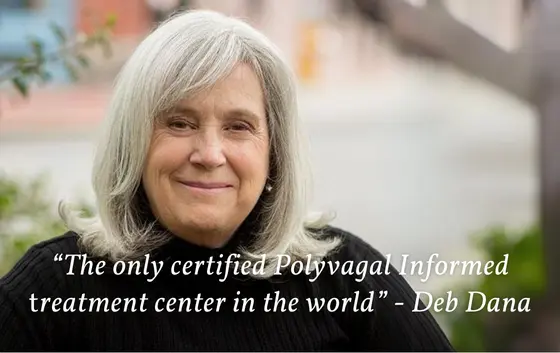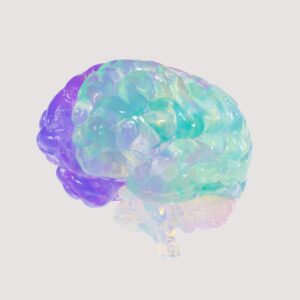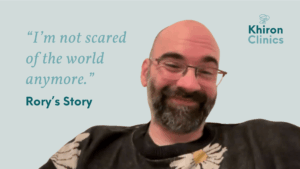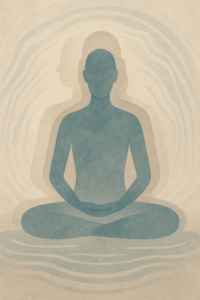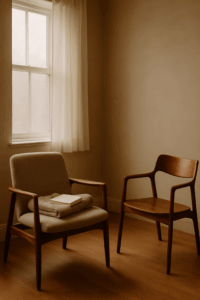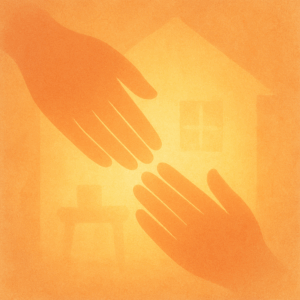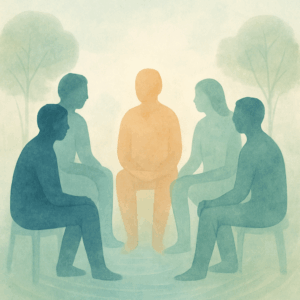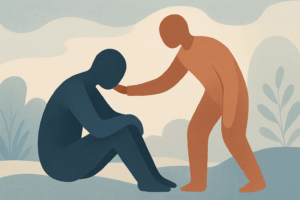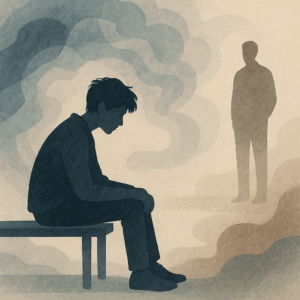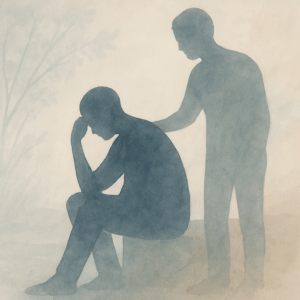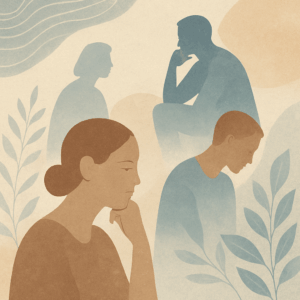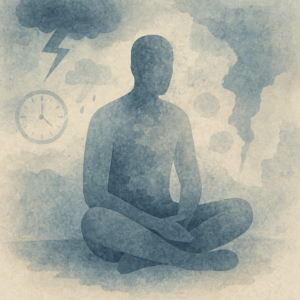Professional Accreditations
Our Commitment to Professional Excellence
More than forty NHS clinical care groups and trusts have referred clients to Khiron Clinics, underscoring our reputation for excellence. We collaborate with esteemed organisations to provide our services, ensuring the highest standards of care.
Additionally, we are proud to be the world’s first Polyvagal Informed certified residential clinic, setting a new benchmark in innovative and effective treatment.
"The team at Khiron have been excellent in the quality of their working together with us to provide a high-quality service to [people], who have very complex needs. This has involved developing and maintaining good team communication between our clinical teams, formulating care plans together with very good involvement of the person themselves, and problem-solving when faced with challenging situations."
External Service Provider, (CQC Inspection Report)
Our Commitment to Excellence
Khiron Clinics Received an Overall 'Good' Rating With the CQC, Demonstrating Our Commitment to Excellence
Khiron Clinics is CQC (Care Quality Commission) registered, which means we’ve passed thorough checks to ensure we provide top-quality and safe care.
We’re pleased to share that we received a ‘Good’ rating in all areas (Safe, Effective, Caring, Responsive, and Well-led), as well as an overall ‘Good’ rating!
The CQC looks at everything from how effective our treatments are to how we ensure our client’s safety and comfort.
This registration shows our dedication to excellent care and helps you feel confident in choosing our services.
Our Report Findings
Here Are Some of the Comments From the Report Which Were Made by Staff, Residents, and External Professionals:
Professional Memberships and Associations
We Work With Members of Respected Organisations to Deliver Our Services






Better than CQC
At Khiron, Excellence in Care Goes Beyond CQC Ratings
At Khiron, we view meeting the CQC standards as merely the starting point. Our goal is to offer a level of care, service, and treatment that surpasses even the highest CQC rating.
CQC assessments don’t always capture the nuances of a service tailored for those recovering from trauma. Individuals in trauma treatment are often highly sensitive to environmental factors that could disrupt their progress, from sudden noises to shifts in personnel, and from social anxieties to overexposure to external stimuli.
That’s why we tirelessly strive to create an environment uniquely optimised for trauma recovery, a level of dedication and innovation we have not witnessed anywhere else in the world, and is proven by our Polyvagal Certification.
We pay attention to these details in many different ways, for example:

Our clinicians are informed, trained and supervised by some of the world's top trauma experts including Dr Bessel van der Kolk, Dr Janina Fisher, Dr Stephen Porges, Dr Dick Schwartz, Deb Dana, Licia Sky and Linda Thai.

We are the world's first Polyvagal Informed certified residential clinic, ensuring that every team member, from our gardener to the board, is well-versed in trauma.

We deliver innovative neurobiological therapies which are at the cutting edge of trauma treatment in residential and outpatient environments which are specifically designed to treat trauma.

We listen to what works instead of only following traditional therapies, which is why we also offer activities such as yoga, equine therapy, tai-chi, breathwork, cold water therapy, ecotherapy and more.

To make our life-saving treatment globally accessible, Khiron Clinics organises and pays for transport for all international clients to the residential clinics and home again, making sure they are supported every step of the way.

We have multiple levels of care, creating a pathway to ensure that there are suitable options all the way from an alternative to hospital care to weekly outpatient therapy sessions, either online or in-person.
What the Experts Have to Say
“Khiron Clinics very specifically knows about trauma.” - Dr Bessel Van Der Kolk
World's First Polyvagal Informed Certified Residential Clinic
“If you have a client or a relative who needs a type of care that is supportive enough to enable them to become who they really are, Khiron Clinics is the place to go.” - Stephen Porges
Khiron Clinics is the world’s first Polyvagal Informed certified residential clinic and revolutionises trauma therapy by embracing Dr. Stephen Porges’ groundbreaking Polyvagal theory.
Our Polyvagal Informed certification underscores our dedication to integrating this theory into our policies and practices, ensuring that every team member, from our gardener to the board, is well-versed in how the autonomic nervous system shapes responses to stress and trauma and to cues of safety.
The Polyvagal-Informed Certificate program focuses on six key areas related to communications, culture, and successful leadership for an organisation. “The goal of the program is to increase understanding of our own nervous systems, how we react to threat vs safety, and to then extend that sensitivity throughout the organisation,” explains Dr. Stephen Porges, professor emeritus, author and creator of Polyvagal Theory.
The 6 Key Areas:
Polyvagal Theory has been integral to the clinical work at Khiron Clinics since its inception, guiding our somatic trauma training for clinicians. Since 2017, we have refined our focus on delivering the theory, particularly through the three states of regulation and the ‘Polyvagal Ladder’. This framework has become a core component of our psychoeducation, helping clients develop tolerance as they prepare to address their traumatic memories.
As one of the Four Pillars of treatment at Khiron Clinics, Polyvagal Theory is delivered through workshops and one-to-one sessions tailored to each client’s needs. Therapists work with clients to identify elements of the Polyvagal Ladder, consistently integrating these insights into therapy. This approach profoundly changes clients’ relationships with themselves and their bodies, fostering lasting healing and resilience.
At Khiron Clinics, we adopt a neurophysiological and relational approach to trauma recovery, emphasising trauma-informed, healthy human interactions. Our service is built on the principles of curiosity, self-awareness, and personal development. We have an extended training program for both administrative and clinical staff that incorporates Polyvagal Theory, compassionate relational practices, and mindfulness. We encourage and support our team in pursuing their own therapy. Additionally, we regularly practice present-moment awareness and check in with each other to foster a mindful and supportive environment. Through these efforts, we strive to maintain a calm and supportive environment for both staff and clients, promoting co-regulation and collective healing.
The clinical team, support workers, and administrative staff are all well-versed in the States of Regulation and understand the importance of personal and group regulation. They can quickly recognize when their system is dysregulated and sympathetic. This awareness and the ability to relate to and support each other have become an accepted and integral part of our culture.
At the start of some meetings, we take a few minutes to center and ground ourselves, followed by a check-in to gauge everyone’s current state. If someone appears triggered or activated, we acknowledge it and offer appropriate support. In times of conflict, we employ the Talking Boundary model to ensure validation and safe communication.
The staff, at all levels, are in ongoing training and supervision. We have scheduled
breaks within the working day, and attention is given to our self-regulation at work and outside. Even during the hiring process, the importance of candidates always taking care of themselves is emphasised.
We have dedicated and refurbished rooms to create a staff area that is as comfortable as possible. We also undertook a significant refurbishment of the whole house to upgrade it to a more suitable working and living environment. We have many plants indoors and outdoors, pets, and generally, a sense of care for the premises is present. We are incredibly privileged to be in a location of extraordinary beauty.
Our primary focus is on ensuring that everyone feels safe, and this extends to our communication methods. We approach discussions about our services with sensitivity and care, avoiding direct selling or aggressive marketing in our newsletters and social media. We inform and educate rather than sell. All our messaging is hopeful and positive, not frightening, and negative.
For example, we avoid negative selling tactics like saying, “Are you desperately depressed? Khiron is the only solution for you.” Instead, we focus on offering valuable information, education, and exploration to prospects and clients. This approach fosters a supportive environment, emphasising education, understanding and growth rather than persuasion.
